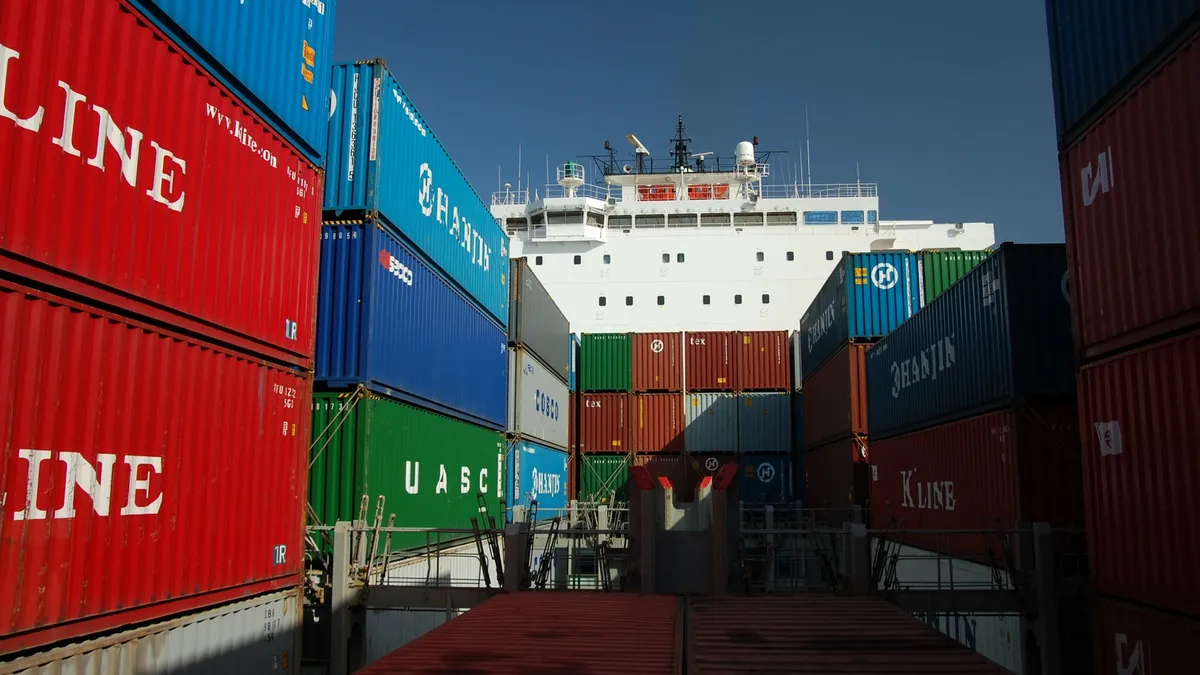Dive Brief:
- CMA CGM will charge shippers requiring carrier haulage services an emergency intermodal surcharge (EIS) beginning March 16, 2018, according to an advisory emailed to Supply Chain Dive.
- The purpose of the surcharge is to offset escalating costs, which CMA CGM attributes to truck driver shortages and the electronic logging device (ELD) mandate. "We are facing significant issues in locating draymen to execute our work orders, resulting in delayed pick-ups and deliveries, as well as significant cost increases," the advisory stated.
- CMA CGM will charge a fee of $300 per container in Chicago; Houston; Savannah, Georgia; Memphis, Tennessee and Columbus, Ohio.
Dive Insight:
Although the ELD mandate is designed to make trucking safer for drivers, the regulation first spooked the trucking industry, and now ocean freight. On routes with intermodal transport, trucking capacity issues have permeated ocean shipping, reaching what CMA CGM described as "an unsustainable level."
The mandate and driver shortage create a domino effect: a trucker driving alone can only work so many hours in a day, potentially leading to delays. If a truck is delayed, a ship waiting to be unloaded may sit at a port longer than needed. That can lead to other ships being delayed, as they wait for available space to dock at the port.
To cover costs associated with such delays, CMA CGM will levy a fee against shippers, which isn't necessarily an unusual move. Carriers are known to impose fees for a variety of reasons, whether for cancellations, peak seasons or high fuel prices.
What is telling about the EIS isn't so much the intermodal surcharge — it's the word "emergency." It shows CMA CGM views problems with trucking capacity as a deep crisis for freight modes already grappling with rising demand.
CMA CGM appears to be the first shipping line to implement a surcharge related to intermodal freight. With ocean freight competition high, it's likely only a matter of time before other carriers begin to follow suit.














